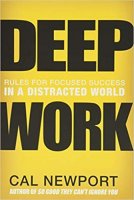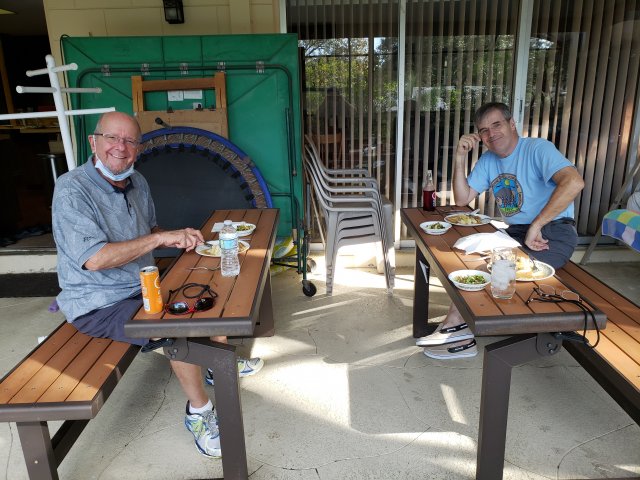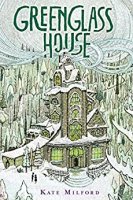It has been a hard year with singing in church choir forbidden. I think that decision was a huge mistake, but our leaders are flying by the seat of their pants here and I'm not going to argue about it now. They're all doing what they think best, even if I disagree with it. But it has certainly been a great loss.
At times like this it is lovely to be part of a family large enough to include all voice parts. In December we were blessed to have a hymn fest with one set of grandchildren, and in April with the other. Call it our Christmas and Easter Festival Celebrations.
Of course we had to include our family anthem: St. Patrick's Breastplate. Nine verses, including two rarely sung these days. (Only a small excerpt here.) Glory, glory, hallelujah!
I realize that for very few of my readers is the question of whether or not a pregnant woman should get a COVID-19 vaccine of any importance. Nonetheless this is worth a post just because it is one of those laugh-or-cry articles.
The source is the School of Public Health at Johns Hopkins, which I generally respect. Here's a link to the whole article for those of you who seriously want the information. It's a serious business and an important decision to make.
For everyone else, however, here are a few snippets that caught my eye and inspired me to write. The bolded emphasis is my own.
Globally, over 200 million people are pregnant each year. Whether they should be offered the new COVID vaccines as they become available is an important public health policy decision. Whether pregnant people should seek vaccination is a deeply personal decision.
Note the term "pregnant people." The article goes out of its way, to the point of being very annoying, to avoid the term, "pregnant women." Exactly how many pregnant men have there been in the history of the world? I do, however, appreciate the acknowledgement that it's a personal decision, although later on the article seems to find a problem with that.
Evidence to date suggests that people who are pregnant face a higher risk of severe disease and death from COVID compared to people who are not pregnant. For instance, pregnant people are three times more likely to require admission to intensive care and to need invasive ventilation. The overall risk of death among pregnant people is low, but it is elevated compared to similar people who are not pregnant. Some studies suggest that COVID in pregnancy might be associated with increased rates of preterm birth.
There are still significant unknowns: How do risks vary by trimester? What are the risks of asymptomatic infection? Further, most current information about COVID and pregnancy comes from high-income countries, limiting its global generalizability.
Although there is not yet pregnancy-specific data about COVID vaccines from clinical trials, the vaccines have been studied in pregnant laboratory animals. Called developmental and reproductive toxicity (DART) studies, research with pregnant animals can provide reassurance about moving forward with vaccine research in pregnant people.
All three of these vaccines offer a very high level of protection against severe COVID. There is little reason to believe these vaccines will be less effective in pregnant people than they are in people of comparable age who are not pregnant.
The next sentence is the one that made me sure I had to write about this. It's the kind of thing I would have shared on Facebook, except that I'm trying to reduce my Facebook presence, so it goes here instead. With more words, naturally.
Professional societies, such as the American College of Obstetricians and Gynecologists, the Society for Maternal-Fetal-Medicine, and the Royal College of Obstetricians and Gynaecologists, all support COVID vaccination in pregnancy when the benefits outweigh the risks.
What, pray tell, does that say that has any usefulness? Who in his right mind would support something when the risks outweigh the benefits? So how is this a meaningful statement at all?
The absence of pregnancy-specific data around COVID vaccines continues an unfair pattern in which evidence about safety of new vaccines for pregnant people lags behind. This unfairness is ethically problematic in at least two important ways.
So, it's unfair because we don't have enough data on the effects of the vaccines in pregnancy? Would they have held back the vaccines until sufficient data had been gathered so that the information was "equal" for everyone? That would truly have been unfair to pregnant women, because letting the rest of the population get vaccinated helps them whether or not they feel safe getting the vaccine for themselves.
First, people may be denied vaccine, or may face barriers in accessing vaccine, because they are pregnant.
I agree that's a problem. Because the data is insufficient, in absence of a clear danger to mother and/or child in getting the vaccine, it should not be withheld from a woman who feels comfortable with it.
Second, even when pregnant people are eligible for vaccination, because public health authorities have not explicitly recommended COVID vaccines in pregnancy, the burden of making decisions about vaccination has shifted to pregnant people.
And where else should it be? Medical advice should not be handed down like commandments from heaven. People need the best information available, and the freedom to make their own decisions—even wrong ones.
Come to think of it, even commandments from heaven come with the free will to ignore them.
Permalink | Read 1360 times | Comments (0)
Category Hurricanes and Such: [first] [previous] [next] [newest] Health: [first] [previous] [next] [newest] Children & Family Issues: [first] [previous] [next] [newest] Just for Fun: [first] [previous] [next] [newest]
Thinking further about Cal Newport's Deep Work, here are two more valuable quotations I should have included.
First, on the importance of a "shutdown ritual" for ending the "work day" (however that is defined for us) and not letting it take over the rest of our lives. I see it as less about employment and more about being able to switch cleanly from one activity to another (including rest).
The concept of a shutdown ritual might at first seem extreme, but there's a good reason for it: the Zeigarnik effect. This effect ... describes the ability of incomplete tasks to dominate our attention. It tells us that if you simply stop whatever you are doing at five p.m. and declare, "I'm done with work until tomorrow," you'll likely struggle to keep your mind clear of professional issues, as the many obligations left unresolved in your mind will, as in Bluma Zeigarnik's experiments, keep battling for your attention throughout the evening.
At first, this challenge might seem unresolvable. As any busy knowledge worker can attest, there are always tasks left incomplete. The idea that you can ever reach a point where all your obligations are handled is a fantasy. Fortunately, we don't need to complete a task to get it off our minds. ... In [a study by Roy Baumeister and E. J. Masicampo], the two researchers began by replicating the Zeigarnik effect in their subjects (in this case, the researchers assigned a task and then cruelly engineered interruptions), but then found that they could significantly reduce the effect's impact by asking the subjects, soon after the interruption, to make a plan for how they would later complete the incomplete task. To quote the paper: "Committing to a specific plan for a goal may therefore not only facilitate attainment of the goal but may also free cognitive resources for other pursuits."
The shutdown ritual ... leverages this tactic to battle the Zeigarnik effect. While it doesn't force you to explicitly identify a plan for every single task in your task list (a burdensome requirement), it does force you to capture every task in a common list, and then review these tasks before making a plan for the next day. This ritual ensures that no task will be forgotten: Each will be reviewed daily and tackled when the time is appropriate. Your mind, in other words, is released from its duty to keep track of these obligations at every moment—your shutdown ritual has taken over that responsibility. (pp. 152-154, emphasis mine).
I find I need to re-learn the following every day.
The science writer Winifred Gallagher stumbled onto a connection between attention and happiness after an unexpected and terrifying event, a cancer diagnosis. ... [A]s she walked away from the hospital after the diagnosis she formed a sudden and strong intuition: "This disease wanted to monopolize my attention, but as much as possible, I would focus on my life instead." The cancer treatment that followed was exhausting and terrible, but Gallagher couldn't help noticing, in that corner of her brain honed by a career in nonfiction writing, that her commitment to focus on what was good in her life—"movies, walks, and a 6:30 martini"—worked surprisingly well. Her life during this period should have been mired in fear and pity, but it was instead, she noted, often quite pleasant. Her curiosity piqued, Gallagher set out to better understand the role that attention—that is, what we choose to focus on and what we choose to ignore—plays in defining the quality of our life. After five years of science reporting, she came away convinced that she was witness to a "grand unified theory" of the mind:
Like fingers pointing to the moon, other diverse disciplines from anthropology to education, behavioral economics to family counseling, similarly suggest that the skillful management of attention is the sine qua non of the good life and the key to improving virtually every aspect of your experience.
This concept upends the way most people think about their subjective experience of life. We tend to place a lot of emphasis on our circumstances, assuming that what happens to us (or fails to happen) determines how we feel. From this perspective, the small-scale details of how you spend your day aren't that important, because what matters are the large-scale outcomes, such as whether or not you get a promotion or move to that nicer apartment. ... [D]ecades of research contradict this understanding. Our brains instead construct our worldview based on what we pay attention to. If you focus on a cancer diagnosis, you and your life become unhappy and dark, but if you focus instead on an evening martini, you and your life become more pleasant—even though the circumstances in both scenarios are the same. As Gallagher summarizes: "Who you are, what you think, feel, and do, what you love—is the sum of what you focus on." (p. 76-77, emphasis mine).
I don't write these posts to frighten or depress anyone. But a number of my readers have higher priorities than chasing down news stories, so I like to raise awareness when I come upon something important, interesting, or even just fun. This one's not fun, but it is important.
Why should I care what's happening in Canada? Leave aside for the moment that Canadians, too, are human beings made in the image of God and therefore we should care about them, and that Canada is the huge neighbor covering our entire northern border and one of our major allies. We should also care about what's happening with our near neighbor because the United States is not as far from this creeping danger as we might like to think.
One of our daughters and several of our grandchildren have for years been taking lessons in karate. One thing I have learned from them is that the first, and possibly the most important, key to self-defense is awareness of your surroundings. Never forget that a far better source also proclaimed wisdom as an essential accompaniment to innocence.
Half a century ago our family discovered Ontario's Arrowhead Provincial Park. We had only intended to spend one night there on our way to Michigan, but were so enchanted we stayed for three. It was quite primitive at the time: there wasn't much to do, and the bathroom "facilities" were a latrine. But we were almost alone in the park; most of the other tourists were staying in nearby Algonquin Provincial Park, which was more developed and very popular. Never have I breathed air so clean and invigorating. More memorable than that, however, were the stars. Not in all the rest of my life have I seen such a display, and such a show, as we lay on our backs on a huge woodpile and watched shooting stars streak across the sky at a rate of perhaps one every two or three minutes. I knew then that if I couldn't live in the United States, I'd want to go to Canada. Later Switzerland moved ahead, and that was well before we had family living there. But Canada stayed a solid second.
Well, that was then and this is now. There are many reasons why Canada has slipped far down on my list, but the following video would be enough.
A government (Ontario's, in this case) went too far with its pandemic restrictions, and finally the citizens—including medical practitioners and the police—rebelled, forcing the leaders to back down on the most egregious of the new rules. That's good news, but be sure to watch to the end to see the clips of Ontario's authorities and their "this hurts me more than it hurts you but it's for your own good" act. And their "it's your duty to snitch on your neighbors" response.
Ontario is a province of 14.5 million people, and 650 of them are currently in intensive care units. This minuscule percentage has caused such panic that the provincial government's response was (among other things) to issue a stay-at-home order, to close playgrounds, boat ramps, and other outdoor recreational activities, and to authorize law enforcement to stop and interrogate any people caught outside of their homes. Canada takes enforcement of these rules very seriously: the fine for violating Quebec's 8 p.m. to 5 a.m. curfew, for example, starts at $1500.
Part of the problem is that Canada's health infrastructure is not good. An ordinary flu season overwhelms the ICUs. I've known for years that Canada's healthcare system is broken, despite the fact that it has its passionate defenders. (Much of my information comes from Canadian nurses, who fled to the U.S., bringing horror stories with them.) Even a bad system—healthcare, government, business, church, marriage—can look reasonable when times are good. It's times of crisis, pressure, and stress that reveal the truth and call into account the leaders we have elected (or been saddled with).
I used to look at historical happenings in other countries—e.g. Austria-Hungary 1914, pre-WWII Germany, Communist Eastern Europe, the Rwandan genocide—and smugly think, "That could never happen here, not now." However, the past year has shown that it can, indeed, happen here and now. We're not there yet, but we've come a lot closer, particularly in the area of what ordinary citizens will do to their neighbors.
American has no call to feel smug—or safe. We may not be as far down the road as Canada is, but it sure looks as if we are heading in the same direction. Should we panic? Despair? Absolutely not. But we'd darn well better be paying attention.
 Deep Work: Rules for Focused Success in a Distracted World by Cal Newport (Grand Central Publishing, 2016)
Deep Work: Rules for Focused Success in a Distracted World by Cal Newport (Grand Central Publishing, 2016)
This is now the third Cal Newport book I've read. If you'd asked me, I'd have said it's the second, but while looking up the link for my review of Digital Minimalism, I noticed that 'way back in 2011 I had also reviewed How to Be a High School Superstar, which I had found to be incredibly important.
It's been a long time since I read How to be a High School Superstar, but if my memory is at all good, I think Deep Work may be the adult equivalent, with Digital Minimalism a natural consequence of those ideas.
Of the three books, Deep Work hits me more where I live at the moment. Not completely; as with Digital Minimalism, it is primarily about the business world, the world of outside-of-the-home careers. I'm certain Newport's ideas are just as important in our private lives; it's just a bit tricky to transfer them to the world of a busy young mother, say. Yet who better than a mother understands the importance (and difficulty) of finding time for concentrated thought?
Sadly, I'm going to disappoint some of my readers with the quotation section, but that just tells you how important I think the book is. Before I was two thirds of the way through Deep Work, I had more than 50 sticky notes marking places I wanted to quote. And more often than not it was several paragraphs rather than a nice, pithy couple of sentences. So basically, I gave up. I didn't mark nearly as many places in the last third of the book, because I knew I couldn't type them all out, and even if I could, my readers' eyes would glaze over early on.
As it turns out, you are going to get more quotations than I had originally thought (though they still don't begin to mine the value of Deep Work), because...
BREAKING NEWS!
Amazon is currently selling the Kindle version of Deep Work for $2.99!
I had already decided I wanted a copy of the book, but the Kindle version, and even the used paperbacks, were out of my price range. It's a popular book. I was struggling to finish reading the book in time—let alone write this review—because it is so popular at the library that I couldn't get it renewed. But while I was busy racking up fines, suddenly eReaderIQ (which I highly recommend) popped up with the news of Amazon's price drop "for a limited time."
I don't know how long that limited time will be, but $2.99 is good enough for me for almost any book that sounds interesting, and for this book it was a very timely godsend.
With the Kindle version I can copy and paste instead of laboriously typing out quotations. (I painstakingly converted all my sticky notes to Kindle highlights.) But the material simply does not lend itself to short quotes and easy summarizing. You really should read the whole book and allow it time to digest.
Here is Newport's definition of deep work:
Deep Work: Professional activities performed in a state of distraction-free concentration that push your cognitive capabilities to their limit. These efforts create new value, improve your skill, and are hard to replicate. (p. 3).
I would argue that these activities hardly need to be "professional," but this is part of the career-world orientation of the book. I'm certain it's adaptable.
And here is his definition of shallow work:
Shallow Work: Noncognitively demanding, logistical-style tasks, often performed while distracted. These efforts tend to not create much new value in the world and are easy to replicate. (p. 6)
The ability (and time) to accomplish deep work has become critical in today's economy—at least if one doesn't want to make minimum wage (or less) in the hospitality industry. (Newport doesn't mention the hospitality industry; that's my observation having seen, both as one who lives in "Mickey's Backyard" and as a traveller.)
To remain valuable in our economy ... you must master the art of quickly learning complicated things. This task requires deep work. If you don’t cultivate this ability, you’re likely to fall behind as technology advances. (p. 13)
The growing necessity of deep work is new. In an industrial economy, there was a small skilled labor and professional class for which deep work was crucial, but most workers could do just fine without ever cultivating an ability to concentrate without distraction. ... But as we shift to an information economy, more and more of our population are knowledge workers, and deep work is becoming a key currency—even if most haven’t yet recognized this reality. (pp. 13-14).
However, deep work is disappearing at an alarming rate.
The ability to perform deep work is becoming increasingly rare at exactly the same time it is becoming increasingly valuable in our economy. As a consequence, the few who cultivate this skill, and then make it the core of their working life, will thrive. (p. 14).
This—and strategies for achieving deep work despite a society of ever-present distractions that actively fights against it—is what the book is all about.
As I mentioned above, mothers could tell Newport a thing or two about the difficulty of putting two coherent thoughts together when one's "office" is a household full of young children. What has changed in the business and academic worlds is that the demands of e-mail, virtual meetings, and other forms of rapid messaging and constant connectivity have brought the world of incessant interruption into the heretofore relatively quiet world of outside-the-home work. Add in Twitter, Facebook, Instagram, and even the business-oriented social media sites like LinkedIn, and our opportunities for deep thinking have become virtually nil.
I was interested to note that the "working retreats" devised by our daughters (young, homeschooling mothers of large families, with cooperative husbands) to carve out time and space for deep work fit in perfectly with Newport's ideas. Not that they could go to the extremes of some of his examples:
[J. K.] Rowling’s decision to check into a luxurious hotel suite near Edinburgh Castle is an example of a curious but effective strategy in the world of deep work: the grand gesture. The concept is simple: By leveraging a radical change to your normal environment, coupled perhaps with a significant investment of effort or money, all dedicated toward supporting a deep work task, you increase the perceived importance of the task. This boost in importance reduces your mind’s instinct to procrastinate and delivers an injection of motivation and energy.
Writing a chapter of a Harry Potter novel, for example, is hard work and will require a lot of mental energy—regardless of where you do it. But when paying more than $1,000 a day to write the chapter in a suite of an old hotel down the street from a Hogwarts-style castle, mustering the energy to begin and sustain this work is easier than if you were instead in a distracting home office. (pp. 122-123)
Then there's this one:
An even more extreme example of a onetime grand gesture yielding results is a story involving Peter Shankman, an entrepreneur and social media pioneer. As a popular speaker, Shankman spends much of his time flying. He eventually realized that thirty thousand feet was an ideal environment for him to focus. As he explained in a blog post, “Locked in a seat with nothing in front of me, nothing to distract me, nothing to set off my ‘Ooh! Shiny!’ DNA, I have nothing to do but be at one with my thoughts.” It was sometime after this realization that Shankman signed a book contract that gave him only two weeks to finish the entire manuscript. Meeting this deadline would require incredible concentration. To achieve this state, Shankman did something unconventional. He booked a round-trip business-class ticket to Tokyo. He wrote during the whole flight to Japan, drank an espresso in the business class lounge once he arrived in Japan, then turned around and flew back, once again writing the whole way—arriving back in the States only thirty hours after he first left with a completed manuscript now in hand. “The trip cost $4,000 and was worth every penny,” he explained. (p. 125).
There is so, so much in this book, but I will only include two more quotations, both from footnotes:
The complex reality of the technologies that real companies leverage to get ahead emphasizes the absurdity of the now common idea that exposure to simplistic, consumer-facing products—especially in schools—somehow prepares people to succeed in a high-tech economy. Giving students iPads or allowing them to film homework assignments on YouTube prepares them for a high-tech economy about as much as playing with Hot Wheels would prepare them to thrive as auto mechanics. (Kindle p. 287, footnote to p. 30, emphasis mine)
The following footnote I include simply because it mentions The Art of Manliness, which keeps popping up in all sorts of surprising places, and holds a special place in my heart because it is a long-time client of Lime Daley, which feeds, clothes, houses, and educates a good number of our grandchildren.
The specific article by White from which I draw the steps presented here can be found online: Ron White, “How to Memorize a Deck of Cards with Superhuman Speed,” guest post, The Art of Manliness, June 1, 2012, http://www.artofmanliness.com/2012/06/01/how-to-memorize-a-deck-of-cards/. (Kindle p. 287, footnote to p. 177)
One thing I especially appreciate about this book is that Newport lays out the problem, and offers suggestions for combating it, but is not dogmatic about the solutions: he knows that once people (and companies) are aware of what is going on, they will be able to craft battle plans that work best in their individual situations.
I can tell the author is young, for he focusses on the contributions of the internet and social media to our splintered attention, and mostly gives earlier forms of distraction a pass. Neil Postman, Marie Winn, and others pointed out back in the 1970's and 80's the addictive nature of television, its deliberate shortening of our attention spans, and the changes it makes to the human brain. And although books and reading are generally indiscriminately lauded by those trying to battle the functional illiteracy of our times (does it matter that someone can read if he doesn't?), the design of much of today's reading material contributes its fair share to the diminution of our ability to concentrate. No doubt the internet, social media, and smart phones are the greatest problem, but it doesn't start or stop there.
As usual, I don't agree with everything Cal Newport says, but there's so much important here it's really worth your $2.99. If you miss the sale, it's certain to be in your public library, though probably with a waiting list.
I love our church. We have an awesome priest, a fantastic music director, a diverse congregation, and a choir of wonderful people who are managing to hang together as a choir despite having been unable to meet in person for over a year. Most amazing is that our form of worship feeds my heart and soul as none other has ever done. And the church is less than 10 minutes away from our house.
But—there's always a "but," right?—this past Sunday I had the best church experience I've had in months. We had to be in another part of town in the afternoon, so on the way we paid a visit to our previous church, one that has remained dear to our hearts even though circumstances had forced us to move on.
There I was reminded that when it comes to worship and music, I really am a high-church Anglican at heart. There are few churches in our area that have that form of worship service, and ours is a prime example, though greatly hampered by pandemic restrictions, especially those that minimize singing. The more low-church service we attended last Sunday made that clear to me. (And that wasn't even the church's "contemporary" service!) But—yes, another "but"—we were overwhelmed by the friendliness of the church, the welcome of old friends, the particular style of the music director (an unbelievably talented person and dear friend), the priest's pastoral heart, and the fact that here is a church that has managed to keep its people safe without unduly sacrificing the gathering-together and the physical touch that is so vital to that which makes us human. Unlike many churches, they have thrived during the pandemic, and it's not hard to guess why.
Hugs! They give hugs! (Though only to those who want them.)
I was unbelievably, quietly, happy all day. There were other reasons for that, but the church experience was a big part of it. It was a huge boost to my somewhat shaky mental health. I am a hard-core introvert who loves to be home, requires times of solitude to function, and has so many projects going on that boredom is very nearly not in my vocabulary. I have a husband who is very good at giving hugs! Plus, I'm not really a touchy-feely kind of person. It kind of creeps me out when people stand too close or touch me when conversing—and that was before COVID-19 entered the picture. If I am feeling significant distress because of the pandemic restrictions, what must it be like for others with greater needs, and for those who live alone?
I'm including here a video of the service. It is no mark of disrespect to our own church that I don't post our services, which are also livestreamed. I'd love to, but valiant as are the efforts of our people, we're not there yet in quality, especially for the audio.
Note to our children, who are the main reason the video is posted here: You will not have time to watch the whole service, but you will definitely want to check out the prelude (about 4:07-11:33) and the offertory (about 50:33-52:20). (The tambourine player in the offertory is, alas, not me.) If you can listen to this without tearing up, you'll be doing better than I did.
Permalink | Read 1240 times | Comments (2)
Category Hurricanes and Such: [first] [previous] [next] [newest] Everyday Life: [first] [previous] [next] [newest]
Porter received the following in an e-mail from George Friedman of Geopolitical Futures. At the end Friedman writes, "A referral is the best compliment. Feel free to forward this email to friends and colleagues," so I trust he will not mind if I quote substantially from it. You could read the entire article here, but it is behind a pay wall. As he often is, Friedman is spot-on. (Bolded emphasis mine.)
On Thursday, my wife and I got our second COVID-19 vaccination. ... The vaccine is incredibly successful, we’re told, which I would expect given the amount of money spent by my government in developing it. But my government is telling me that in spite of the vaccine nothing will change. I must maintain social distance, wear a face mask and so on. The vaccine’s creators say it’s unclear if the virus can still infect someone. ... [But] the continuous usage of masks can have unintended consequences.
It is often said that wearing a mask and maintaining distance is a trivial burden to pay for safety. But I take issue with that argument. ... Talking is far more complex than merely hearing words. Humans communicate much with facial expressions....
Humans use the face to identify threats; criminals wear masks as much to hide their intentions as they do to conceal their identities. Someone enraged at you or planning to harm you looks a certain way, someone delighted to see you another. It is not only the mouth that speaks to you. The muscles in the face can reveal tension or pleasure. The nose moves. The eyes reveal much. Facial expressions are much harder to interpret behind a mask. If you are very bored, ask your spouse to put on a mask and interpret their true feelings by the eyes alone. It can be done, but without context the probability of being wrong soars. The mouth, nose and lower half of the face are the checksums on what is said, and the mask impedes that greatly.
You can text or phone, but the ability to see those you speak to, or stand close to a stranger you just met, is indispensable to being human. So by definition, masks and distancing disrupt the process of being human. Ironically, if someone is speaking with a well-made mask, they are frequently incomprehensible unless you are a lot closer than six feet apart. The mask and social distancing tend to be mutually destructive.
Now, if these measures are the only ways to avoid mass death, then obviously they are necessary. But the assertion that these measures protect without cost is untrue. On multiple levels they impose costs that we may not yet understand. Learning how to play as a child, exploring the limits of tactile interaction, is essential to adulthood. My argument is not against these measures, if they are truly vital, but the cost-benefit must be addressed, and if the measures involve real costs, they should be imposed cautiously. Finding out if the vaccine makes me not infectious must be figured out quickly, as I fear the costs of a year of massive social and economic disruption are mounting. If the mask is essential to prevent another surge, so be it. But do not treat social distancing and masking as a trivial matter.
I worry most of all for the children. There are already many people, e.g. those on the autism spectrum and those we casually referred to as nerds in the days before everything had to have a diagnosis, who have difficulty reading social cues. Thanks to the pandemic restrictions, we now have a large cohort of children who have spent a critical formative year without broad access to facial cues, and with limited in-person social interaction. There is no way this will not have a detrimental affect on their socialization.
Long-time readers will know that I am not, absolutely not, worried that children are not going to school. For decades I have been convinced that education is essential but school is not; in fact, school is often out-and-out harmful. I laugh when people express concern that home-educated children are missing out on socialization, because their opportunities for social interactions with people of all ages and backgrounds are generally much richer than those of children who spend most of their time in school classrooms. But the "homeschooling" of children who normally go to school is a very different thing, and they do not likely have the rich networks those who homeschool have already developed. Plus, during the pandemic homeschools have also been shut off from their usual experiences. Whether public-, private-, or home-educated, a generation of children is being marked, and not for the better, by masks and anti-social distancing.
As if this weren't concern enough, apparently re-opening schools is also dangerous. There's this news from Quebec, Canada, where in at least three separate incidents the government has had to recall face masks that had been widely distributed, including to schools and day care centers, and were later feared to be causing lung damage.
It is one thing to wear a mask for short periods of time—though I wouldn't ever be thrilled at the prospect of inhaling toxic materials—but quite another for children—children!—to be endangering their lungs for hours on end, and months on end, while in school. We're so concerned, and rightly, about second-hand smoke in homes where children live, but for all we know this could be as bad or worse.
I've been told many times that we shouldn't fuss about wearing masks, because doctors and nurses and others wear masks professionally for long periods of time. Actually, I worry about them, too—but at least they are adults, whose lungs and social skills have long passed their most sensitive formative years. They are wearing them much more now than they used to—my eye doctor couldn't get his insurance renewed unless he had a policy of wearing a mask at all times in his office. In fact, I'm wondering if the habit of medical workers wearing masks, as important as it may be for reasons quite apart from COVID-19, might be playing a significant role in the depersonalization of medical care. I know, there are many factors involved. But when one's doctor or nurse looks more like a normal human being and less like a faceless alien, the medical care feels better. Especially, I daresay, to children.












Swallows and Amazons ♦ Swallowdale ♦ Peter Duck ♦ Winter Holiday ♦ Coot Club ♦ Pigeon Post ♦ We Didn't Mean to Go to Sea ♦ Secret Water ♦ The Big Six ♦ Missee Lee ♦ The Picts and the Martyrs ♦ Great Northern? by Arthur Ransome (Jonathan Cape, 1930-1947)
Arthur Ransome's Swallows and Amazons is an all-time favorite series from childhood. We are blessed to have a full set of hardcover versions on our shelves, thanks primarily to my brother who braved Mad Cow disease to bring them home from England in the 1980's, when they were unavailable here. These enchanting books have been family reading for our children, our nephews, and our grandchildren, and I never tire of them myself. Therefore I was shocked to realize that the last time I read them—other than in parts, as I would occasionally look up a favorite passage—was more than ten years ago. It was definitely high time to work my way through the series again.
I fully agree with C. S. Lewis, who said, "A children's story which is enjoyed only by children is a bad children's story. The good ones last." Although the protagonists in these stories are children, and the books are set nearly 100 years ago, they are books for every age, and in every age. Boats and sailing feature prominently and so delightfully that I was convinced by these books that I would love sailing. Alas, I found the reality to be disappointingly unlike the fiction—but at least some of our grandchildren feel differently.
Swallows and Amazons Here it all begins. It was known as a "free-range kids" book before Lenore Skenazy made Free-Range Kids a thing. Six children (four Swallows and two Amazons), ranging in age from seven to twelve, camp entirely by themselves on an island, including making fires, cooking, and sailing all over the lake. What sets these books apart is not only the very realistic competence and responsibility of the children, but a strong sense of family, of love and respect between parents and children and among the children themselves. The sibling squabbles taken for granted today are simply nonexistent, yet their relationships are natural and unforced. What I find all the more remarkable is that this sense of family is maintained in a time and place where it was considered normal to send young children off to boarding school. And though fathers rarely appear in the stories—in this case, one has died and the other, a Navy man, is overseas—they are clearly loved, respected, and heads of their families. At the same time, the female characters are unusually strong and competent.
Swallowdale Expecting a return to their glorious island summer, the children now face several seemingly unsurmountable obstacles. Their adventures as they overcome these challenges make this one of my favorite books in the series.
"They look happy enough," said Captain Flint, watching the Amazon slapping across the ripples on her way to Horseshoe Cove.
"They aren't," said Captain John.
"Ï know they aren't, but the next best thing to being happy is to look it."
Peter Duck A story-with-the-story imaginative tale of a trip by the Swallows and Amazons characters from England to the Caribbean, complete with pirates and a treasure hunt. Parental caution: One of the pirates is black, treated on equal footing with the rest of the pirates, stereotyped along with the others for his profession but not for his race. The word "nigger" occurs six times in the book: once in the narrative of the pirates' "ship's boy"—a "street kid" with an appropriate vocabulary—in which it is descriptive, not pejorative. The other five times it is used as a slang identifier for a black pearl.
Winter Holiday If I had to pick a favorite among the Swallows and Amazons books, this would be it. Two new major characters are introduced, and the integration into the group of Dick Callum, who in modern times would be called a nerd, makes especially clear one of the strengths of this series. Each character is unique, each brings something valuable to the team, and each is appreciated for his gifts and lovingly tolerated for his quirks. On top of that, this is a story of a great adventure on the ice, coming out of what looked to be a disaster—an outbreak of mumps—with children and grownups in just the right proportions.
Coot Club When I first picked up this book as a child, I was disappointed. This story is set in a different part of England, with new characters and only Dick and Dorothea, the two introduced in Winter Holiday, to tie it in with the rest of the series. But the new characters are just as competent, independent, and engaging as the previous ones. If this story has too much of the kind of tension I dislike in a book—I hate bullying!—at least all's well that ends well.
Pigeon Post This time the original six children, plus Dick and Dorothea, are back in the original setting with new challenges, including some serious danger and real heroism. The title comes from the homing pigeons they use to communicate with worried adults while they are camped further afield, prospecting for gold.
We Didn't Mean to Go to Sea One of my very favorites of the series. I've always read it as an adventure story, but this time what stood out was a story of how courage, intelligence, good preparation, spiritual strength, loyalty, obedience, compassion, family, and love—all the character traits extolled in the best medieval (and medieval-inspired) romances—can unexpectedly be called upon in the ordinary lives of ordinary human beings.
Secret Water The youngest Swallow, four-year-old Bridget, is finally old enough for adventures with the rest of the gang. Being temporarily marooned on an unknown island, for the purposes of discovery and map-making, was not meant to be as dangerous as it turned out to be.
The Big Six returns to the setting and characters of Coot Club. Even knowing that the bullies lose in the end cannot diminish the discomfort I feel with their antics. Every time I read it. Nonetheless, it's an enjoyable story. Parental warning: there a couple of instances of the word "nigger," used by a young boy seeing a photographic negative for the first time. Younger people may find it difficult to believe that this word was once used as an innocent descriptor—and included those of Asian Indian as well as of African descent—with no malice intended. But it was. Still, today it requires some explanation—or skipping when read aloud.
Missee Lee is the second story-within-the-story. This time the six original Swallows and Amazons, along with the intrepid Captain Flint, are taken captive by Chinese pirates. Some readers will take exception to what they see as stereotyping of the Chinese people, but Ransome was familiar with Chinese life and culture, and based the character of Missee Lee, respectfully, on the wife of Sun Yat-sen and others he met during his visits to China in the 1920's.
The Picts and the Martyrs Set once again in home waters, this story features the Amazons, Dick and Dorothea, and a love-to-hate-her character from Swallowdale, the Great Aunt, who once again puts all sorts of obstacles in front of the planned idylic holidays on the lake. There's a surprise twist at the end that reveals a lot about the characters and makes this another one of my favorites.
Great Northern? There is some debate as to whether this is a "real" story or a third story-within-the-story. Those who choose the latter seem to base their reasoning largely on the presence of guns and threatened violence, but Ransome himself insisted it was not intended to be a made-up story like Peter Duck and Missee Lee. In Ransome's day, most people had a more balanced view of guns than many do now, and would not have thought them out of place in a children's story. This one is set in the Outer Hebrides and includes an introduction to Scottish Gaelic culture. Dick and Dorothea, the Amazons, and all the Swallows except Bridget are included, along with the bird protection theme that first appears in Coot Club. My enjoyment was only slightly marred by the presence of another evil bully, this time an adult, at the center of the plot.
Altogether this is a wonderful series of books, with a very positive view of children, parents, families, and communities. For all that, it is totally free of those awful elements that often creep into stories intended to make a point (positive or negative) about children, parents, families, or communities. It's clear that Ransome doesn't intend anything except to write good stories about people and places inspired by his own experiences.
Christ is risen!
I write this before heading out to church to worship, sing, and play with our hand chime choir. The sad news is the expected: Far fewer Holy Week services than usual, severely restricted congregational size for Easter, masks and unsocial distancing required, singing much reduced, and no choir on what is usually the most glorious day of the year. The good news: At least we're having services; last year at this time we were completely shut down. And if we have no choir, at least we will have guest musicians and our little hand chime choir ringing our hearts out. Plus many other choir members singing joyfully from the congregation, which may, perhaps, encourage more congregational singing than otherwise.
I am not unaware of the phenomenon that if you take away people's freedom for long enough, you can make them thank you when you allow them to have a small measure of it back, and that we are very much in that situation. Even so, it is far better to be grateful than not, though I'll reserve my gratitude for God, not the government and not the bishop (who has imposed stricter restrictions than the state).
After the service, I'll be scurrying around our kitchen, getting ready for our dinner guest. This is the same friend who joined us for Thanksgiving, only this time we will not "socially distance" our table. All three of us are well into our vaccination grace periods and intend to take advantage of it when we can reasonably do so, no matter what the more overly-cautious authorities may recommend. We're not going to be stupid about it—we have important events coming up and there are more germs than COVID out there that can bring one down. But "too much" does more harm than "enough."

We tend to be traditionally untraditional. I grew up having ham for Easter dinner, and loved it. However, Porter doesn't care much for ham, and in any case, a normal Holy Week and Easter leave me far too exhausted to think about cooking a meal, much less having guests. Recently, someone from the choir (we miss you, Peggy!) would organize a restaurant brunch. Needless to say, that's not happening this year. But with our severely restricted schedule, I'm willing to cook. But it won't look like Easter. For Thanksgiving we did not have turkey, rather a pork roast. The turkey in the freezer was reserved for a December "Thanksgiving" with family (about which, I realize, I have yet to write). The family get-together happened, but we were too busy with other things to make the belated Thanksgiving part of it. So guess what was still in the freezer and will make our Easter feast, complete with stuffing, mashed potatoes, gravy, sweet potatoes, and cranberry sauce?
UPDATE: Today's dinner, with the table together.
On a different note, meet St. Margaret of Scotland (click to enlarge).
Saint Margaret is my 28th great-grandmother (Porter's 26th), and I've written about her before. This "Tiny Saint" was a Good Friday gift from a very thoughtful friend whom I met in person for the first time at our church service. She is actually our cousin, albeit a tad distant: we all have Saint Margaret of Scotland as a common ancestor. The "Tiny Saint" was officially blessed by a priest, and now has pride-of-place in my office, watching above my computer and under photos of our grandchildren.
Our children, who each have what is considered today to be an unusually large number of offspring, may be glad to know that, according to the write-up on the back, their 27th great-grandmother is considered a patron saint of large families. She herself had eight children.
May you all have a very happy and blessed Easter!
Permalink | Read 1153 times | Comments (0)
Category Everyday Life: [first] [previous] [next] [newest]
Maybe you never wanted to be a rock star. Maybe you don't care much for that music and the genres it spawned. Maybe you aren't interested in a career in the music world at all.
No matter: In the first 22 minutes of this video, Rick Beato has a story to tell you, and some good advice for us all. More of his interesting personal story is told in other videos on his Everything Music channel, but this summarizes his journey and how he faced the obstacles he encountered, including being rejected twice when he applied to music school. He rambles a bit, but it's a good story.
Porter alerted me to this interesting, though highly biased, view of what's necessary for successful learning at home. It's from a Geopolitical Futures report by Antonia Colibasanu.
According to an April 2020 report by the European Commission, more than a fifth of children lack at least two of the basic resources for studying at home: their own room, reading opportunities, internet access and parental involvement (for children under 10 years old).
We can ignore the absurdity of needing internet access to learn from home, because the context of the quote is traditional classroom schooling provided from outside to children at home, rather than education per se.
What struck both of us, however, is the first "basic resource": that the child should have his own room. Granted, a quiet place to work is a great thing, but I see no reason why that implies the need for single bedrooms. And, as my friend and sometime guest poster points out, school classrooms are hardly solitary spaces. Mind you, I'm not in favor of open-plan offices, but I find it amusing that one's own room is considered necessary for learning but currently out of favor in our trendier workplaces.
Public education from home is relatively new, but of course homeschoolers have been doing it for centuries (well pre-internet, I might add), and often in the context of large families in which shared bedrooms are common. What is required is not separate bedrooms, but discipline and respect for others. I'll admit it also helps to have the ability to concentrate in the presence of distractions, especially if you live (as our grandchildren do) in a family where someone is nearly always singing or playing a musical instrument. Our own children discovered that climbing a tree was a good way to get some undistracted reading time.
Further, this insistence on single bedrooms—with its implication of small family size—ignores the tremendous educational advantage of having multiple siblings. My nephew learned math far beyond his grade level because he wanted to keep up with his brother. Our younger grandchildren see no reason why they shouldn't be learning and doing what their older siblings are, and the older ones are usually happy to help them along.
Public education is a very confining box to learn to think outside of, even when the devil drives.
I've posted quite a bit already about and by David Freiheit and his YouTube channel Viva Frei. But he certainly deserves a part in this series, so here it is, along with some new (to here) videos.
David Freiheit is a Canadian lawyer in Montreal, who worked several years with a big law firm, then started his own commercial litigation practice. During this time his YouTube presence grew, and in 2018 he gave up his practice and took his YouTube channel fulltime. He calls his vlog (video blog) a VLAWG, because his video commentary on current issues from a legal standpoint is what really took off for him. I love seeing American politics from a Canadian point of view, and learning more about life in Canada, especially in Quebec. Occasionally one gets a chance to practice French, but the vlog is in English and Freiheit is good at providing translations.
His style is a little on the crazy side, but he makes legal issues and legal documents interesting, which qualifies him as a miracle worker as far as I'm concerned.
Although Freiheit pulls no punches he is also generally happy, positive, and willing to see more than one side of a situation. He retains his lawyer's caution and willingness to go beyond the surface of a story. Sadly, the pandemic—or more precisely, governmental reaction to the pandemic—is taking its toll on his optimism, but as with much these days, we live in hope that "this too shall pass."
Note: This is a caveat appropriate for all YouTube videos, but especially ones that touch on politics: you may want to avoid the comments. Freiheit is a reasonable and generally even-handed commentator, but not all his followers are so polite.
Another note: You may notice that he uses his own euphemisms for certain words. I don't mean for profanities—he's quite good at keeping his vlog clean without that—but for otherwise normal words that tend to upset the YouTube algorithm and lead to the demonetization or even taking down of videos. Words like "coronavirus," "COVID," and "fraud," for example, have at one time or another been YouTube no-no's. Sometimes he'll also just leave a legal paper or a tweet or letter up on the screen for the audience to read, since apparently YouTube is more likely to object to the spoken word than an image of words. The things you have to do for freedom of speech these days!
There are several different kinds of videos on Viva Frei, and he films in a few different locations. Many of his vlogs are recorded in his car, a concession to the pandemic reality that there's no quiet place in the house. Some are nonetheless done from his basement, and right now he is being quarantined in a family cabin because someone in one of his children's classrooms tested positive for COVID. He also vlogs while ice fishing, which I find both interesting and distracting—I tend to worry because even a New Hampshire native would consider the conditions very cold, and he often has bare hands!
My introduction to Freiheit's work was his legal analysis of current issues; even after all this time, I'm still tickled that he can make legal language and legal proceedings interesting. The following video about a lawsuit against Facebook is a good example of that kind, including a short explanation of class-action lawsuit, and it's less than 10 minutes from start to finish.
Here's another, also from his car, showing not so much legal matters as applying a logical legal mind to reveal the facts behind the news story—or in this case, the tweet. (Just over 10 minutes.)
Then there's his "Viva on the Street" series, in which he vlogs while walking along the streets of Montreal with one or both of his dogs, because walking a dog is one of the very few ways in which it is legal for a Québecois to be out after the "temporary, one-month" curfew was imposed back in mid-January. (Spoiler alert: the curfew is still in place.) Since one of his dogs has paralyzed hind legs, and the other is a puppy going blind, he actually spends more time carrying them than letting them walk, but so far the officials haven't fined him—as they've done to those who have been walking their cats, and the one intrepid woman who had her husband on a leash. Dogs only, please.
But I digress. Here's one of the "Viva on the Street" episodes about the curfew (11 minutes).
He also does live streams with American lawyer Robert Barnes, which are fascinating, but who has time to watch for two hours? I wait for the excerpts that he publishes afterwards. I'd post a sample here, but I'd rather not include more than three videos in an introduction. If you get interested in the channel, you'll find the live streams.
And there's more. All in all, it's a fascinating channel, with more videos than I can keep up with—or even want to. If you'd occasionally like to get out of your American news bubble, or your mainstream media bubble, or to know more of the stories behind the headlines, this is a good place to be.
For less in the way of politics and more on everyday life in Quebec, Freiheit has another channel, Viva Family.
Permalink | Read 2844 times | Comments (0)
Category Reviews: [first] [previous] [next] [newest] Politics: [first] [previous] [next] [newest] Inspiration: [first] [previous] [next] [newest] YouTube Channel Discoveries: [first] [previous] [next] [newest]
 Greenglass House by Kate Milford (Clarion Books, 2014)
Greenglass House by Kate Milford (Clarion Books, 2014)
This book appeared in the curriculum for one or more of our grandchildren. I'm not sure what level—probably upper elementary—but when you homeschool, school grade levels are meaningless, and everyone in the family enjoyed it, from kindergarten through high school, as well as the adults.
I can see why.
Even after hearing their enthusiasm, I made the mistake of being swayed by what I read on Amazon. Based on that, I thought this was going to be a "school story," and I find adolescent school stories almost as intolerable as romances. But on their repeated recommendation, I borrowed the book from the library and did, indeed, enjoy it very much. It has certain attractions for a genealogist, and more attractions for a mystery-lover, and I am both. The school part appears only at the very beginning and is cheerfully ignored thereafter.
My only disappointment is a bit of a deus ex machina at the end. I'm not going to spoil the story here, but let's just say I could have done without the supernatural elements. Not that I'm totally against them—I do enjoy E. Nesbit's books, for example—but in this case it felt rather like cheating.
The story, however, is a good one, and I especially enjoyed the author's descriptions, and use of words. Plus, I love stained glass windows. Here's a sample:
He padded through to the far end of the living room and past the biggest of the house’s stained-glass windows, a huge floor-to-ceiling panel in copper, wine, chestnut, verdigris, and navy. He continued down a very short hall to a blue door at the end of it. A big, round brass bell tied to his doorknob with a wide plaid ribbon gave a welcoming jingle as Milo turned the knob to enter and another as he closed the door behind him. He reached for a switch and the lights came on: a brass anchor lantern that hung beside the door that had once belonged to the ship his grandfather had served on, and a string of onion-shaped red silk lanterns embroidered with Chinese characters and hung with gold tassels that crossed the room diagonally from opposite corners of the ceiling.
They had me at "copper, wine, chestnut, verdigris, and navy."
I'm told there are interesting sequels, but unlike the first book there is swearing in them that makes reading aloud more of a challenge. I can't imagine why an author would think this is appropriate in a book designed (according to Amazon) for 10-12 year olds. I miss the old days when publishers reined in their authors' bad language, forcing them to write, "She swore like a sailor," letting the reader's imagination fill in the blanks, instead of making the language explicit.
Next up in this series of interesting YouTube channel subscriptions: Everything Music, by Rick Beato. I was going to say that I can't remember what introduced me to to Rick Beato's channel, but a look back at one of my own posts gave me the answer: Google apparently decided I would be interested in it, popping up a suggested video on my phone. For once they were right.
My gateway to Beato's channel was the musical abilities of his young son, Dylan. There are several Dylan videos, but this one is a good 13-minute compilation:
It turns out that the Dylan videos are but a small part of Everything Music. Beato covers so much; I'll let him give the intro (13 minutes).
Music theory, film music, modal scales, tales from his own interesting musical history, and a whole lot of modern music about which I know little and like less.
Remember what I said about Excellence and Enthusiasm?
I'm a child of the 60's, chronologically, but unlike most of my generation, I've never liked rock music, nor any of its relatives and derivatives. Granted, growing up when I did there was no getting away from it, and there were a few specific songs I did enjoy. At one point, I was even a minor fan of Jefferson Airplane, and attended one of their wild, live concerts. That point in my life, while embarrassing, reminds me of this line from C. S. Lewis' Screwtape Letters: "I have known a human defended from strong temptations to social ambition by a still stronger taste for tripe and onions." Who knows what trouble I might have gotten into in my college years had I not had a stronger taste for what is loosely called classical music?
What, specifically, don't I like about the rock genre(s)?
- The music is almost invariably played at ear-splitting volume, literally ear-damaging.
- Most of the music comes with lyrics, and with a few exceptions, I find that they range from boring to abominable.
- The heavy emphasis on pounding rhythms drives me crazy; I never have liked playing with a metronome.
- The timbre of the electric guitar, nearly ubiquitous in rock music, is one of a very few that I generally find unpleasant (saxophone is another).
Enter Rick Beato. If his son's abilities are astounding, Rick's aren't all that far behind, and his experience, knowledge, and enthusiasm keep me interested in his analysis even though most of his examples are from music I can't stand. It helps a lot that he uses short excerpts, in which neither lyrics nor pounding beats have a chance to do much harm. Plus, I control the volume.
I especially enjoy Rick's videos on modal music, as that has always interested my ear. It does seem really odd to hear him talk about modes without any reference to church music, in which modal music was once really big. But I had no idea how important modes are in rock music and film scoring, and learning through Rick's videos has been a delight. Hiding underneath all that raucous sound and those objectionable lyrics is a lot of complex and very interesting music. It's not going to make me a rock music fan, but it gives me more appreciation for the skill of the musicians behind it—if not for their sometimes questionable moral compasses. (I know, classical composers were not necessarily saints, either. There's a reason I generally prefer instrumental music.) It has also heightened my awareness of the music that undergirds our movies and television shows, and why it is often so powerful.
Here's an interesting Gustav Holtz/John Williams comparison from one of his movie music videos (16 minutes):
That's enough for an introduction; I'm sure I'll be posting more Everything Music videos in the future.
Permalink | Read 2175 times | Comments (0)
Category Reviews: [first] [previous] [next] [newest] Education: [first] [previous] [next] [newest] Music: [first] [previous] [next] [newest] Inspiration: [first] [previous] [next] [newest] YouTube Channel Discoveries: [first] [next] [newest]






